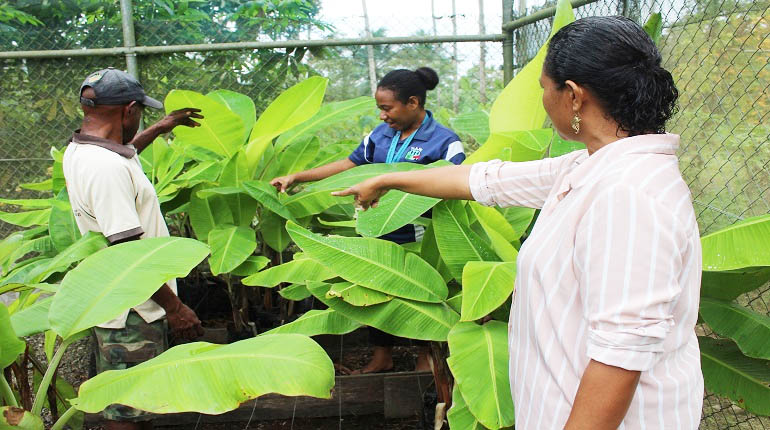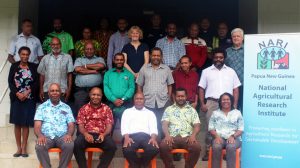Farmers in Markham District in Morobe will soon have clean banana seeds to plant following a devastation by a wilting problem (banana wilt associated phytoplasma) in parts of the valley.
Over the past few years farmers in the Markham District in Morobe reported a slow demise of their bananas. The variety mostly affected was the Kalapua or locally referred to as Marafri.
A team from the NARI Momase Regional Centre at Bubia collected and analysed samples of the affected bananas from parts of Markham to determine the cause of the problem.
Results from their assessment indicated that a new disease the banana wilt associated phytoplasma was responsible for the devastation on Marafri.
In some areas of the Markham the problem was so bad that locals thought that they had lost Marafri.
The loss meant loss of livelihood and food security. Marafri is a staple food for the people and has been grown for generations. Since then, they have resorted to growing other varieties such as the orange-flesh banana, a very popular variety from the Lae area.
However, most other varieties do not withstand the dry conditions in the area.
To help address this issue, samples of the local Kalapua were collected from farmers, tested for being free from the BWAP pathogen and transferred into tissue culture. This technique allows for faster multiplication of bananas compared to traditional methods from suckers.
When the tissue-cultured banana plantlets have reached sufficient height, they are placed in a nursery to harden before they go through a second test to ensure that they are free from the pathogen and other pests.
Farmers now have the option of using these disease-free banana seeds to replace those which were affected by the banana disease in their gardens.
Marafri can once again be planted and support food production for farmers in the Markham District.
A nursery of disease-free banana seeds has been developed and planned for distribution to the affected areas in the Markham district.




